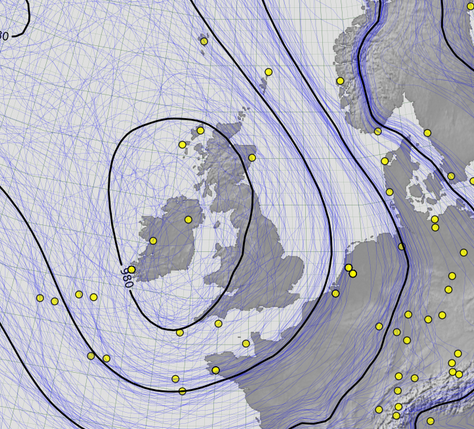Ships’ logs¶
For the 70% of the Earth covered by ocean, we depend on observations made and reported by ships. This is a global, rather than a UK responsibility, and observations are disseminated through ICOADS, but the UK, as an island nation with a large fleet, has always been heavily involved in this work.
Ships have made weather observations, and recorded them in their deck logs, as part of their daily routine, for hundreds of years. So deck logs, where they have survived, are a valuable source of observations, and many Royal Navy ship’s logs are preserved in the collections of The National Archives (TNA). Some ships also participated in the Voluntary Observing Ships (VOS) scheme; these ships also produce specialist meteorological logs, and the UK VOS fleet logs are archived in NMLA.
As well as these two main archives, there are ship records from the English East-India Company held at the British Library, and there are weather observations in the collection of ‘Remarks Books’ held at the Hydrographic Office (but being transferred to TNA). The Caird Library at the National Maritime Museum has a large collection of Lieutenant’s logbooks, but those have been thoruoughly digitised already by the CLIWOC project, and contain few instrumental observations. There may be other major UK archives of ship weather data, perhaps containing deck logs from commercial ships, but we have not found them.
A final category of historical marine observations come from voyages of scientific, or geographical exploration. These often carried meteorological specialists and equipment, and often provide the earliest-known weather observations from their regions of exploration.
See also this report by Clive Wilkinson.
